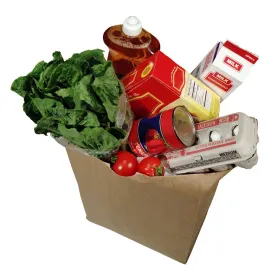Country-of-origin labeling (COOL) is not economically beneficial to American consumers, according to a new report authored by a team of agricultural economists from Kansas State University and the University of Missouri. In the report, the United States Department of Agriculture's (USDA) chief economist concluded that COOL failed to provide "measurable economic benefits" and American producers, packers, and retailers suffered yearly losses of $2.6 billion in compliance costs. While the USDA report found that consumers expressed interest in COOL information, the economic benefits of COOL were small because "little evidence" exists that U.S.-origin labels influence consumer buying habits favorably by increasing demand for U.S.-origin goods.
The origin of the COOL requirements dates back to the 2002 Farm Bill. Congress intended the labeling requirement to protect the reputation of meat produced by U.S. farmers and ranchers. The 2008 Farm Bill amended COOL provisions and COOL was implemented in 2009. The U.S. beef industry suffered $405 million in losses as a result of the implementation of the COOL requirements.
Since its implementation, COOL has been the subject of several lawsuits, including cases brought by the World Trade Organization (WTO), Canada, and Mexico. U.S. courts have upheld the COOL regulations, which require beef, poultry, and pork to have labels indicating where they were "born, raised, and slaughtered." The WTO had previously found several COOL requirements to be discriminatory against foreign livestock and will issue its final ruling in that case in a few weeks.
The Michigan Pork Producers Association (MPPA) released a statement that supports the results of the USDA study. Sam Hines, executive vice president of MPPA, said that studies he has seen show that the COOL requirements do not make a difference in consumer buying habits. Rather, he was not sure who benefits from the COOL requirements because "most consumers don’t know or care if the label is on the package as long as the meat's considered safe."
The National Farmers Union, however, urged Congress not to change the COOL requirements. NFU President Roger Johnson called the USDA report "premature" and said Congress should not intervene until the WTO has decided the COOL cases.




 />i
/>i
